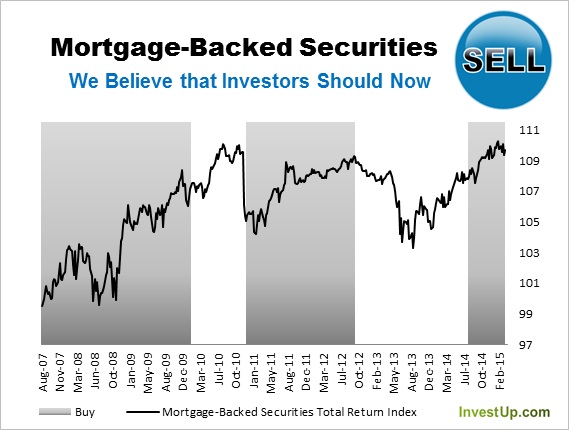Who Is Buying Mortgage Backed Securities
Post on: 14 Август, 2015 No Comment

Recently the Feds H.8 report showed that small banks are providing a stronger demand for Fannie and Freddie (or agency) mortgage backed securities (MBS) than larger banks. Year-to-date, large domestic bank holdings of agency MBS have declined by $10 billion but agency MBS holdings of small domestic banks have increased by $19 billion.
In addition, bank demand for agency MBS has been stronger than the demand for Treasuries, reversing the pattern seen in 2009 and early 2010. But banks recent share buyback announcements are possibly indicating that banks are viewing share buybacks to provide a better return than leveraging their investments in fixed-income securities (due to lack of loan growth). Are those larger banks saving their money for buybacks? lawsuits? dividends? Stay tuned! More on MBS topic below.
Barclays Capital notes that over the past few months, mortgage REITs have been aggressively raising equity, which should translate into significant demand for mortgage backed securities (MBS). Barclays states that since December 2010, agency mortgage REITs have raised about $6.6 billion of new capital. Assuming a 6-10x leverage multiplier, this should translate into $40-65 billion of agency MBS demand. A comprehensive analysis of REITs and their trends is beyond the scope of this commentary, but a few simple notes should be made.
Real Estate Investment Trusts are simply a corporation or trust that uses the pooled capital of many investors to purchase and manage property or mortgage loans. They are traded like stocks, are usually very liquid, and have special tax considerations the most notable being they pay no taxes but instead pass those on to shareholders.
Mortgage REITs are not risk-free, however, since they take leveraged exposure to agency MBS and are typically exposed to duration risk, negative convexity risk, mortgage spread widening risk, yield curve flattening risk, idiosyncratic risk associated with prepayments, and the risk that short-term funding market could freeze up.
Most mortgage REITs that focus on agency MBS took the last three risks (flatter yield curve, idiosyncratic prepay risk, and the risk that repo funding market could dry up) but the exposure to the first three risks is now more notable because interest rates are at historically low levels and REITs seem to be buying fixed-rate agency MBS instead of hybrid ARMs which increases their exposure to negative convexity and mortgage spread risks.
Historically, Wall Street notes that REIT flows were not large enough because the agency MBS-focused mortgage REITs had significantly lower level of equity and they were also more active in less negatively-convexed MBS products like hybrid ARMs. But lately the equity level of REITs has increased significantly and they have become more active in the fixed-rate agency MBS market. Thus, analysts expect REITs to continue to gather more attention from the agency MBS market going forward.














